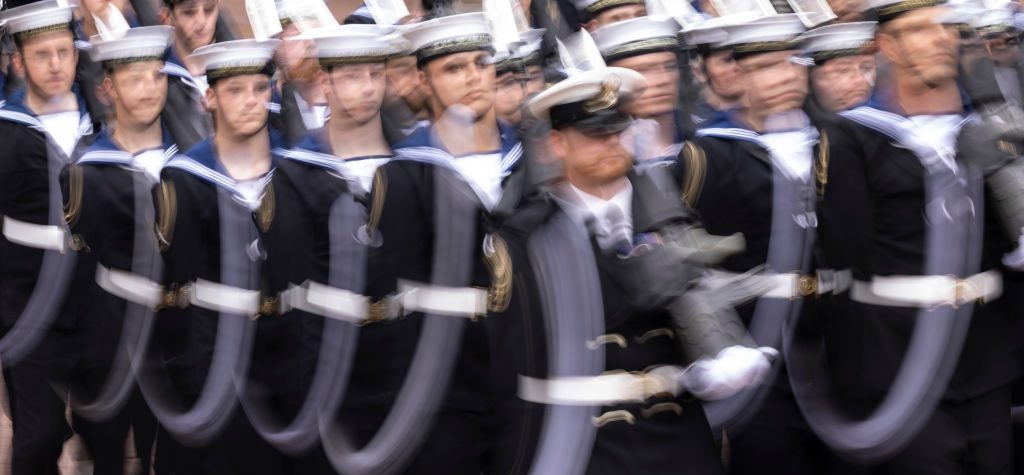“Everyone thinks rape is a women’s issue, I did too, until it happened to me.”
In 2021, Forward Assist, a military veterans charity, published its report, “El Hombre Invisible”. It is one of the most painful reports I have ever read. I can barely get through a few pages without feeling my body tighten and experiencing a sick feeling in the pit of my stomach.
“El Hombre Invisible” includes harrowing stories from 30 male military veterans, revealing sexual abuse, harassment and rape whilst serving in the British Armed Forces. I was already well aware of the similarly horrific experiences of women veterans. I helped promote Forward Assist’s joint 2019 report “No Man’s Land” with Salute Her – a female veterans charity – to politicians in the UK (we received a very lukewarm response). “No Man’s Land” also detailed the sexual offences and silencing experienced by women. Learning about the sexual offences stories from so many men woke me from my lazy assumption that rape is predominantly a women’s issue.
Telling women and men’s stories has become a core focus for Forward Assist and Salute Her. The charities, founded and run by Tony Wright and Paula Edwards, offer practical, compassionate support and guidance to former service personnel to help them reintegrate into civilian life. From employment to mental health support, they provide an array of tailored and holistic services. Their engagement is founded on developing and nurturing strong, trusted relationships with and between their users, with all activities designed to improve mental and physical well-being and reduce social isolation, loneliness and trauma. I won’t share the stories or harrowing quotes here, but I encourage you to read the reports, which can be found on Forward Assist’s website and come with a trigger warning.
Frankly, it’s been hard to get politicians to take up the issue. Sarah Atherton, Member of Parliament for Wrexham since 2019 and the first female MP to have served in the regular armed forces, is the exception. She’s been fighting to raise awareness of the pervasive culture of sexual abuse and bullying in the military ever since we brought the research to her attention soon after she got elected. She has already achieved so much, especially in getting women veterans’ voices heard in Parliament.
In December 2020, the Commons Defence Select Committee launched a sub-committee inquiry into women in the armed forces, chaired by Atherton. It explored the numerous challenges facing military women today, from sexual offences to practical problems including ill-fitting uniforms and inadequate support for military mothers. The inquiry report – “Protecting those who protect us: Women in the Armed Forces from Recruitment to Civilian Life” – was subsequently published in July 2021 and included a set of strong recommendations.
This brave effort had led to increased attention on the issues so many in politics and the armed forces find hard to acknowledge, let alone discuss and address. In November, the media put a spotlight on the rise of rape and sexual assault reports among girls aged 16 to 18 serving in the military and quoted General Sir Nick Carter recognising that the army
encouraged a “laddish culture” and that he was open to a full government inquiry to make improvements. Great, but there is still such a long way to go before the issue is fully grasped and effectively tackled.
Where to go from here?
Addressing harassment and rape requires understanding its nature and scale. Sophisticated research and surveillance that sees men and women as potential victims is required. Forward Assist and Salute Her have called on the MoD to formally adopt and the term Military Sexual Trauma (MST) as a unique experiential symptom of sexual assault in the military. An independent body should be set up to deal with all cases of serious sexual offences and intimate partner violence in the UK. The MoD should also refer all sexual assault and domestic violence cases to the civilian police and ensure that no serving personnel or veteran feels afraid of reporting their experience.
Tragically, many military veterans remain silent about their experiences of sexual trauma out of fear they will not be believed or that they will lose their job or chance of promotion. The same goes for historical offences. The government should explore setting up an independent and robust reporting system for survivors who wish to report historical abuse. Such a process will also help shed light on the scale and nature of the problem to date.
The UK has come a long way since 2019 in recognising and starting to talk about sexual offences in the military. But there’s more to be done: the government and military need to bite the bullet and lift the lid on a toxic culture that has been kept silent and hidden for far too long.


